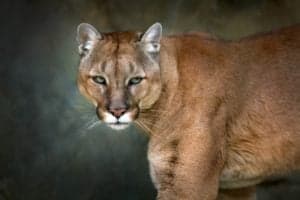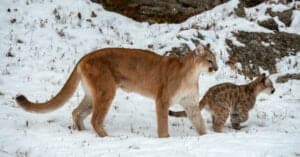The mountain lion is one of the coolest and most elusive animals in North America. It is secretive and intelligent, rarely seen unless it wants to be. Unfortunately, these animals have been pushed to the brink by hunting and habitat loss, and they aren’t nearly as common as they used to be. Today, we are going to be learning about where they live. Let’s explore: are there mountain lions in Virginia?
Are there mountain lions in Virginia?
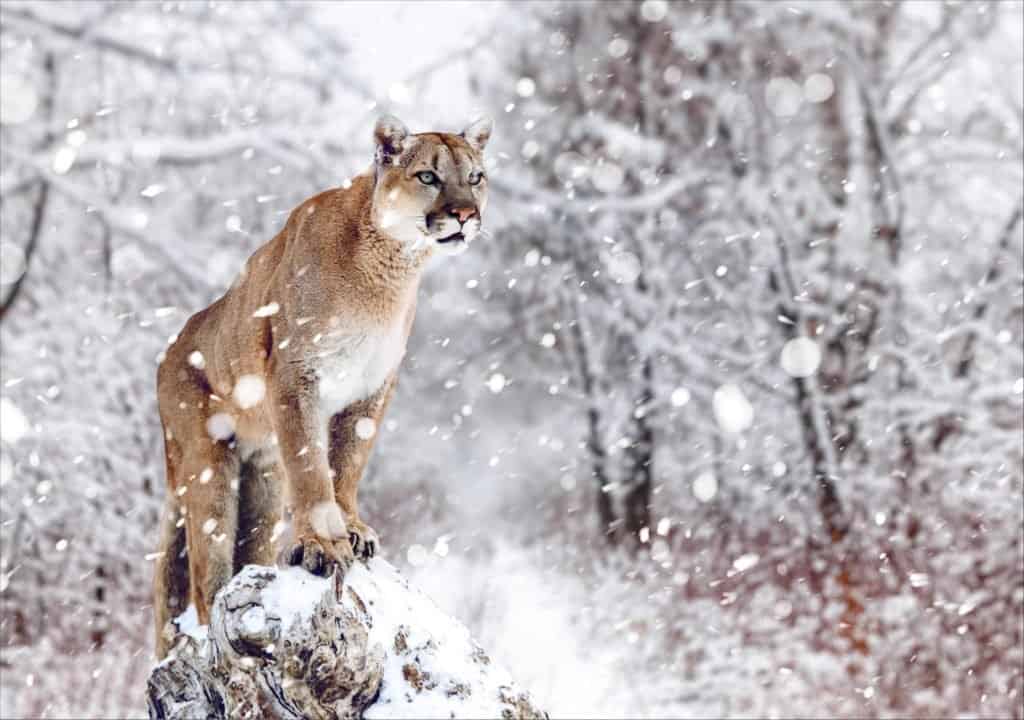
Mountain lions haven’t had a population in Virginia since 1882.
©Unknown/Shutterstock.com
Sadly, mountain lions no longer live in Virginia. They were last seen in 1882 and have since been killed off.
Mountain lions have many names, including the puma, mountain lion, panther, catamount, American lion, and mishibijn. Historically, these creatures had a range that extended well into Virginia, where they had a population, especially in the Blue Ridge Mountains. Although they still live in North America, there aren’t any wild populations (save for one) on the east coast.
There are currently an estimated 20,000-40,000 mountain lions remaining in the United States, but that number used to be much larger. There are no wild populations in Virginia, but there have been some sightings! Additionally, the likelihood of mountain lions reclaiming their former territories in the mountains of Virginia is a distinct possibility. Let’s explore what that looks like some more.
When were mountain lions pushed out of Virginia?
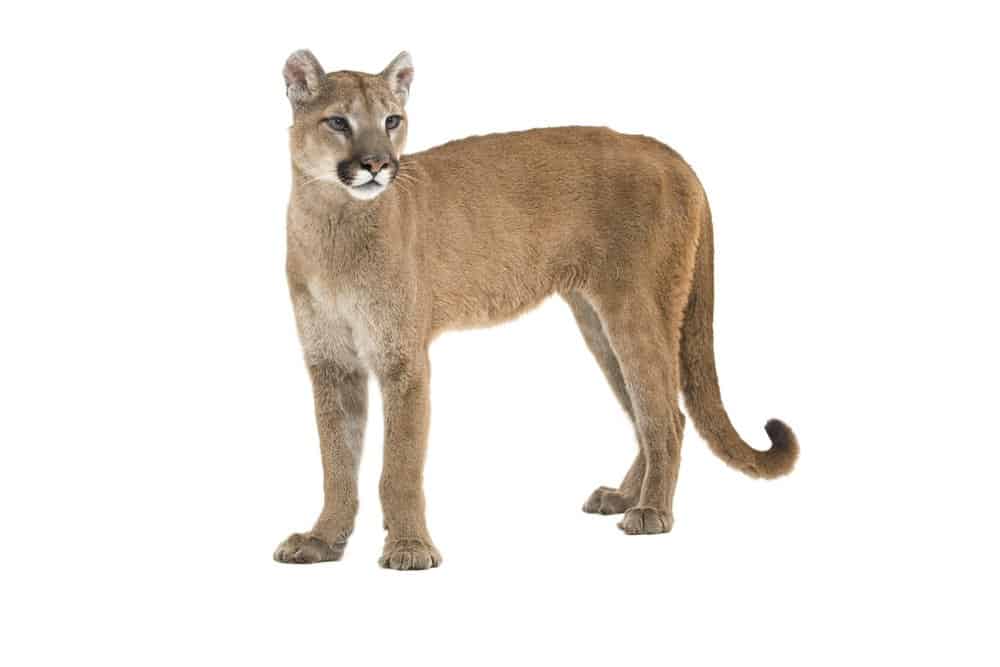
The last mountain lions were killed off in the 1800s.
©Ultrashock/Shutterstock.com
Originally, mountain lions lived across the entire continent of North America. Now, they are mostly relegated to a few states in the west. The last mountain lion in Virginia was killed in 1882, and since then, no active breeding population has been present across the state. Sadly, these animals were killed because they were viewed as a threat to humans and livestock.
Although there are no more eastern mountain lions, there is a small population of Florida panthers that live in the swamps of Florida. The Florida panther is a subspecies of the eastern mountain lion that lives in the Everglades and pine forests of central Florida. Today, there are less than 200 Florida panthers remaining.
There aren’t any mountain lions in Virginia, but there is hope that they may return to their original habitat! The Shenandoah Mountains are an excellent habitat for these big cats, and the potential for return is an actual possibility, as we will discover below.
When were the last sightings of mountain lions in Virginia?
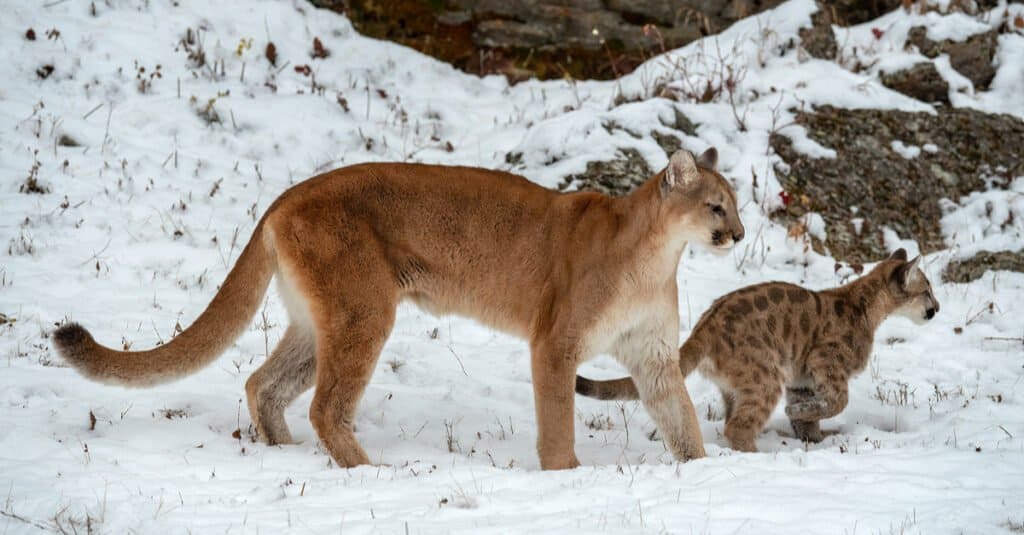
There have been 121 mountain lion sightings in Virginia since 1970.
©Chris Desborough/Shutterstock.com
Although the eastern cougar is extinct, there are still sightings of these cats across the state. In fact, there have been 121 reports that are likely to have been true mountain lion sightings. Although this is great, there are a few things to consider.
The first is that many sightings during certain periods are the same cat. If a mountain lion walks around an area enough, many different humans will notice. As a result, multiple sightings across different time ranges could be attributed to the same cat.
Secondly, the sightings of mountain lions are likely the result of escaped or released animals that were once captive. Since there are no breeding populations in Virginia, the likelihood of a secretive population that has existed since 1880 is very unlikely. Instead, these sightings are likely captive cats that were intentionally or accidentally released or traveling cats from a state out west.
As the science stands, the most likely option is that the sightings are the result of young males traveling east in search of new hunting and breeding grounds. For conservationists, this is a huge step in the right direction. Still, many sightings aren’t clear or even true, so being skeptical is still the best bet when it comes to sightings in Virginia.
What other big cats live in Virginia?
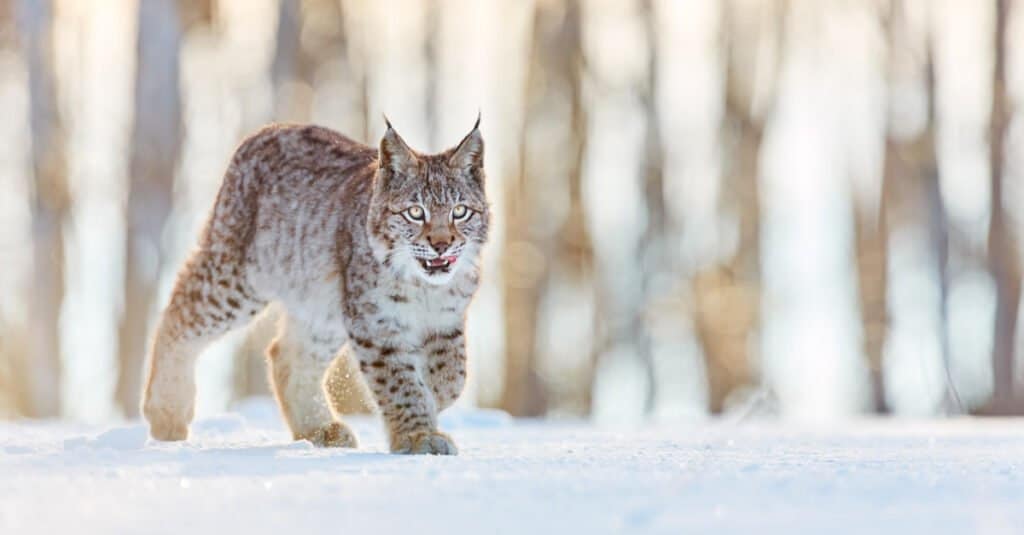
Bobcats are the only native wild cat still around in Virginia.
©Petr Salinger/Shutterstock.com
Currently, there is only one species of wild cat that lives in Virginia. The bobcat is a resilient cat that has managed to keep under cover and establish territory across most of the United States. This medium-sized cat weighs between 9-33 lbs, has stubby tails and characteristic tufts of hair coming out of its ears.
Although these wild cats are smaller than mountain lions, they are extremely good hunters. Their typical prey includes rabbits and squirrels, but they can kill deer when they are feeling up to it. In fact, bobcats take down prey that weighs as much as 8 times their weight when the situation arises.
Bobcats generally live away from humans, preferring places like the Great Dismal Swamp and the mountains. Part of their success is due to their adaptability when it comes to hunting and habitat needs.
Will mountain lions ever return to Virginia?
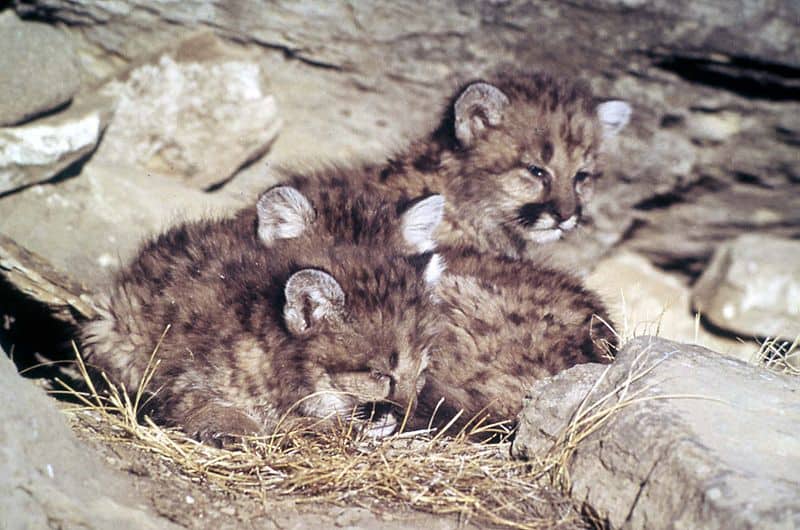
Mountain lions are on the rebound, with some estimates claiming small populations in the Blue Ridge in 30 years.
©WL Miller, Public domain, via Wikimedia Commons – License
As it stands, there are no native populations of mountain lions in Virginia, but that could change.
Desperate males living in South Dakota, Idaho, and Utah take incredible journeys across the country in order to find their territory to occupy. For the first time in years, these cats are on the rebound and extending their range further into their historic regions. The Blue Ridge Mountains are prime habitat for these cats, and once they get a foothold in the region, the signs are positive that they could return.
It isn’t certain, but some researchers claim that there could be native cougar populations across the Blue Ridge in as little as 25-30 years. While this may be incredible, it is still ways off. Additionally, those unaccustomed to living near apex predators will need to adjust their way of thinking! Still, this is great news for conservationists and animal enthusiasts alike.
Up Next:
The photo featured at the top of this post is © Scott E Read/Shutterstock.com
Thank you for reading! Have some feedback for us? Contact the AZ Animals editorial team.




